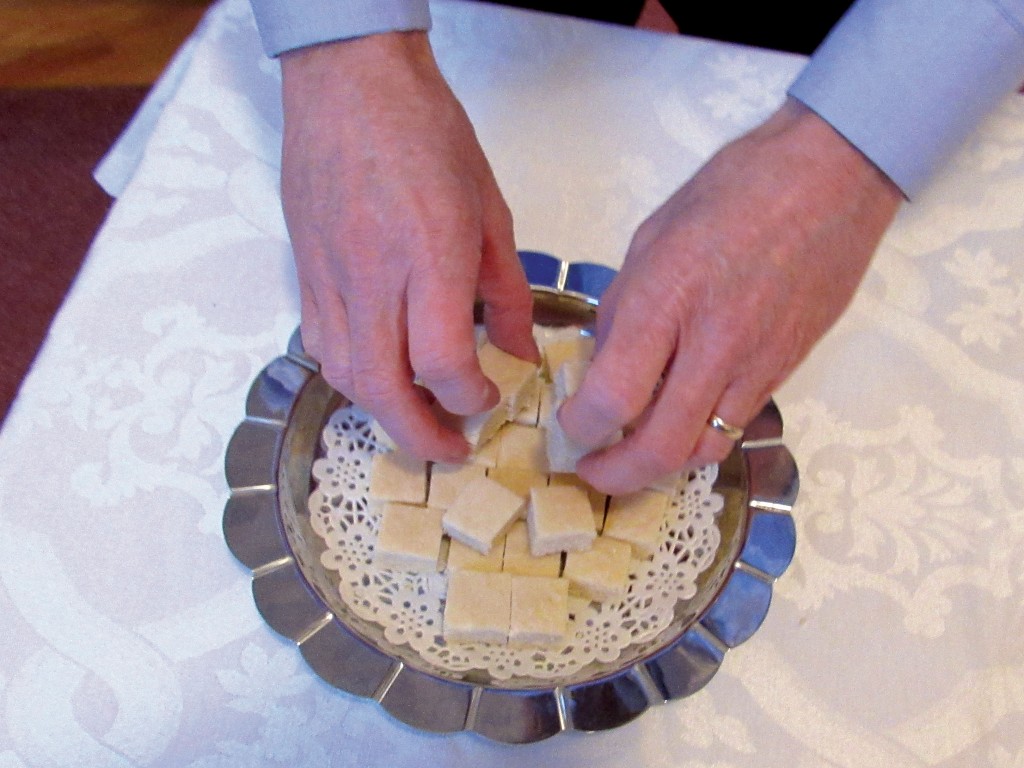You have free articles remaining this month.
Subscribe to the RP Witness for full access to new articles and the complete archives.
Why collect communion bread recipes?
When I first became responsible for providing communion bread for my congregation, I took the obvious and easy way. I called several local bakeries—only to discover that hardly any bakery could supply my need. But I did find one bakery, at some distance, that would bake the bread on a special-order basis. The bread was quite tasty and was not unlike a cake in texture, thought rather thin. After a few turns buying bread for my congregation’s communion services, I decided that I could do it more conveniently at home, and hopefully better, if I could find a simple recipe.
Whom to ask for a recipe?
The obvious answer was to ask good cooks and bakers. By consulting several qualified ladies in my congregation, who gladly shared recipes, I soon had several to choose from. I then began to experiment. One Saturday afternoon before communion, I chose three different recipes as a trial. I needed confidence before exposing my kitchen skills to the congregation! I evaluated these three results, settled on one recipe, and marked a no on the other two.
Why continue to search for recipes?
After I began to volunteer my services at the Reformed Presbyterian Archives, which are located at the Reformed Presbyterian Theological Seminary in Pittsburgh, Pa., I discovered several recipes in some of the session books and in other records of disorganized RP congregations. I thought it would be good to have a file of recipes. Why not? There surely would be requests for recipes that we could then supply. As time marched along, and as I met friends, some with long ties to the RP Church, I continued to ask if they had any recipes that they would share with me. Many did.
I now have over 40 recipes on file. In the hope of being of service to newer congregations that do not have long ties to our denomination, I want to share my collection. Sometime in the near future I plan to have a link to these recipes on the Reformed Presbyterian Archives website (rparchives.org) as a resource for persons, similar to me, who find themselves “volunteering” to provide communion bread in their congregations.
What are my criteria when selecting a recipe to bake for my congregation?
The ingredients and method have to be simple and easy. I do not do well with a rolling pin! The recipe should not have any special flavoring that results in a lingering taste in the mouth. After all, the Lord’s Supper is a sober and solemn moment, and the mind is not to be distracted. There should be no reason to make a mental note to compliment the baker, no cause to criticize the baker, and no special flavoring. The baker should mix simple and common ingredients together, then pour the batter thinly into a pan to be baked.
How many recipes do I have?
At the present count, I have 44. But there is room for more.
What is the range of ingredients and methods of baking?
The ingredients are typical of bread recipes. Most recipes use flour, but some use gluten-free ingredients. Some use baking soda and powder, butter, margarine, salt, and flavoring of some sort.
What is the problem with giving credit to the source?
Many of the recipes have been shared from person to person, from congregation to congregation, and from generation to generation.
The most recent source might be listed, but who originated it? With shared recipes, it is difficult to give full credit. Nevertheless, when a name or congregation is known, it is listed.
Suggestion
It would be a fun and interesting activity to have a Communion Bread Tasting Event. Perhaps this event could take place at the RP International Conference, with many people baking one recipe with a large quantity to share. Others persons would taste, make comparisons, and vote for the most desirable.
Offer
If anyone would like to have this file of communion bread recipes, we will send it upon request via an email to the RP Archives: archives@rpts.edu. Eventually we hope to have the recipes available on the RP Archive website. If anyone has a recipe to share, this would be most welcome. We would love to expand our files.
John M. Mitchell is a volunteer for the RPCNA archives; clerk of session at Rose Point (New Castle, Pa.) RPC; and associate professor emeritus of business administration at Geneva College.


